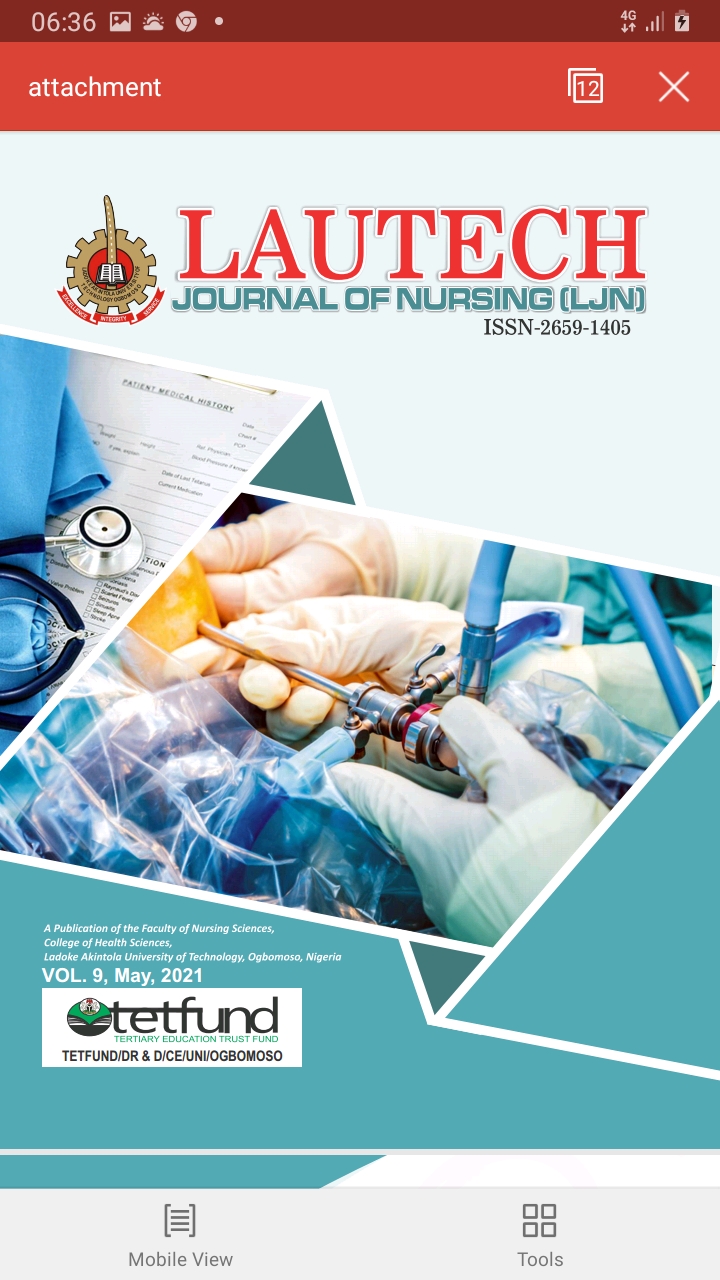Diabetes Mellitus (DM) is a chronic non-communicable disease often associated with chronic complications which affects the quality of life of sufferers. As such, individuals with diabetes are expected to exhibit a level of confidence in the
management of their condition to help delay development of complications. A cross sectional study was carried out on 382 individuals with type 2 diabetes mellitus that accessed care from Out Patient Diabetic Clinic of Tertiary Health Institutions in South East, Nigeria. A standardized instrument; the Stanford Chronic Disease Self-Efficacy Scale was adapted and used for data collection. Data collected was analysed with SPSS (20) and presented in tables. Data on self-efficacy was ranked and rated as low, moderate or high self-efficacy. Hypotheses were tested using Chi square and spearman rank correlation test statistics. P-value less 0.05 alpha level was considered significant. Findings revealed low self-efficacy in exercise domain 133(34.8%), the doing chores domain 119(31.2%), social recreation 109(28.5%) control/manage depression domain 106(27.7%). On the other hand, 115(30.1%) study participants had high self-efficacy in their ability to obtain help from friends/family 124(32.4%) had high self-efficacy in ability to communicate with physician. Age has an inverse correlation with some domains of self-efficacy (p < 0.05); as age increases, participants’ self-efficacy decreases in those domains. Likewise, level of education and occupation significantly influenced
self-efficacy (p < 0.05). However, no significant association was found between gender, marital status and the self-efficacy domains (p > 0.05). Diabetic population in this study had poor self-efficacy which invariably may influence their self-care behaviour. As a result, health care professionals (Nurses and doctors) should develop strategies such as educational programme to improve self-efficacy in individuals with type 2 diabetes mellitus.
- OKAFOR | Christiana | Nkiru | christyokafor30@gmail.com | +2348035486853, EZENDUKA | Pauline | Ojinaka | ezendukap@gmail.com | +234, ONYENEKWE | C. | C. | charleschinedum@yahoo.com | +234, OKPALA | PAT | UZO | favouredpat4@yahoo.com | +234
- Type 2 Diabetes Mellitus, Self-efficacy, Non-communicable Disease, Sociodemographic
- OKAFOR Christiana Vol 9 (1)


